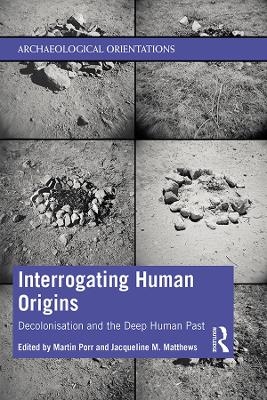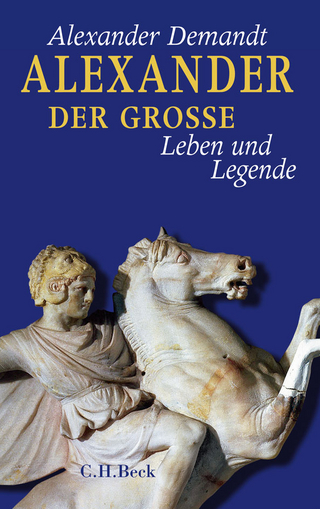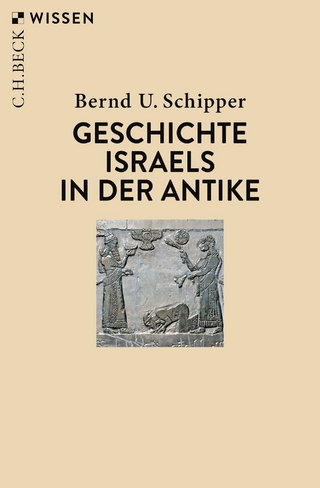
Interrogating Human Origins
Routledge (Verlag)
978-1-138-30041-5 (ISBN)
Interrogating Human Origins encourages new critical engagements with the study of human origins, broadening the range of approaches to bring in postcolonial theories, and begin to explore the decolonisation of this complex topic.
The collection of chapters presented in this volume creates spaces for expansion of critical and unexpected conversations about human origins research. Authors from a variety of disciplines and research backgrounds, many of whom have strayed beyond their usual disciplinary boundaries to offer their unique perspectives, all circle around the big questions of what it means to be and become human. Embracing and encouraging diversity is a recognition of the deep complexities of human existence in the past and the present, and it is vital to critical scholarship on this topic.
This book constitutes a starting point for increased interrogation of the important and wide-ranging field of research into human origins. It will be of interest to scholars across multiple disciplines, and particularly to those seeking to understand our ancient past through a more diverse lens.
Jacqueline M Matthews is a professional archaeologist with Cultural Heritage Management Australia and has wide-ranging experience working with Indigenous communities across Australia. She completed her Masters thesis at University of Western Australia focused on the application of ontological and postcolonial theories to Australian archaeology, which lead to a research interest in the role of Australia in global debates about human origins. Martin Porr is Associate Professor of Archaeology and a member of the Centre for Rock Art Research + Management at the University of Western Australia (UWA). His research has so far concentrated on aspects related to Palaeolithic European art, Australian rock art, human origins and postcolonial approaches towards archaeological research. He has conducted fieldwork in Germany, Thailand, Australia, India and the Philippines.
Section 1: Introduction; Chapter 1 Interrogating and decolonising the deep human past; Section 2: Definition of the human and its colonial legacy; Chapter 2 IMHO: inventing modern human origins; Chapter 3 Modern ontologies of the ‘more-than-animal’ human: provincialising humanism for the present day; Chapter 4 Colonialism and narratives of human origins in Asia and Africa; Chapter 5 Primordialising Aboriginal Australians: colonialist tropes and Eurocentric views on behavioural markers of modern humans; Section 3: Representation, temporality and narratives of human origins; Chapter 6 Old Flames: rekindling ideas of fire, humanity and representation through creative art practice; Chapter 7 Orientalism and origins: the search for firsts in the ‘Cradle of Civilization’; Chapter 8 The Beast Without. Becoming human in the science fiction of H.G. Wells; Chapter 9 The temporality of humanity and the colonial landscape of the deep human past; Section 4: National, political and historical dimensions of human origins; Chapter 10 The Far West from the Far East: decolonisation and human origins in East Asia: the legacy of 1937 and 1948; Chapter 11 Interpretative shifts in understanding the prehistoric settlement of the Indian Subcontinent: comparing Western and Indian historical perspectives; Chapter 12 Our earliest ancestors: human and non-human primates of North America; Chapter 13 "If we are all African, then I am nothing", hominin evolution and the politics of identity in South Africa; Section 5: The construction of genetic facts; Chapter 14 Naming the sacred ancestors: taxonomic reification and Pleistocene genomic narratives; Chapter 15 Traditional owner participation in genetic research: a researcher perspective
| Erscheinungsdatum | 09.10.2018 |
|---|---|
| Reihe/Serie | Archaeological Orientations |
| Zusatzinfo | 3 Tables, black and white; 23 Halftones, black and white; 23 Illustrations, black and white |
| Verlagsort | London |
| Sprache | englisch |
| Maße | 174 x 246 mm |
| Gewicht | 453 g |
| Themenwelt | Sachbuch/Ratgeber ► Geschichte / Politik ► Vor- und Frühgeschichte / Antike |
| Geisteswissenschaften ► Archäologie | |
| ISBN-10 | 1-138-30041-1 / 1138300411 |
| ISBN-13 | 978-1-138-30041-5 / 9781138300415 |
| Zustand | Neuware |
| Haben Sie eine Frage zum Produkt? |
aus dem Bereich


